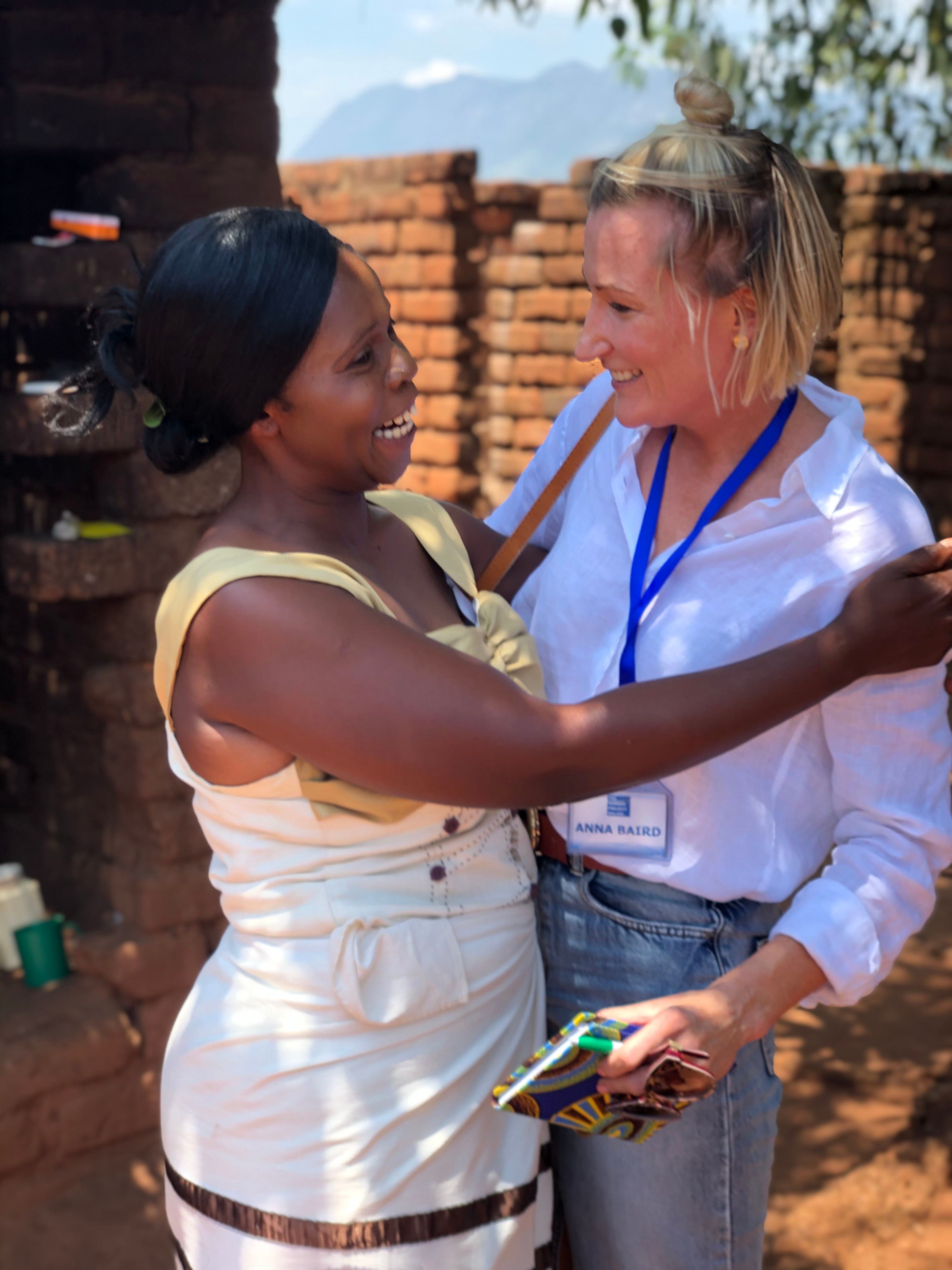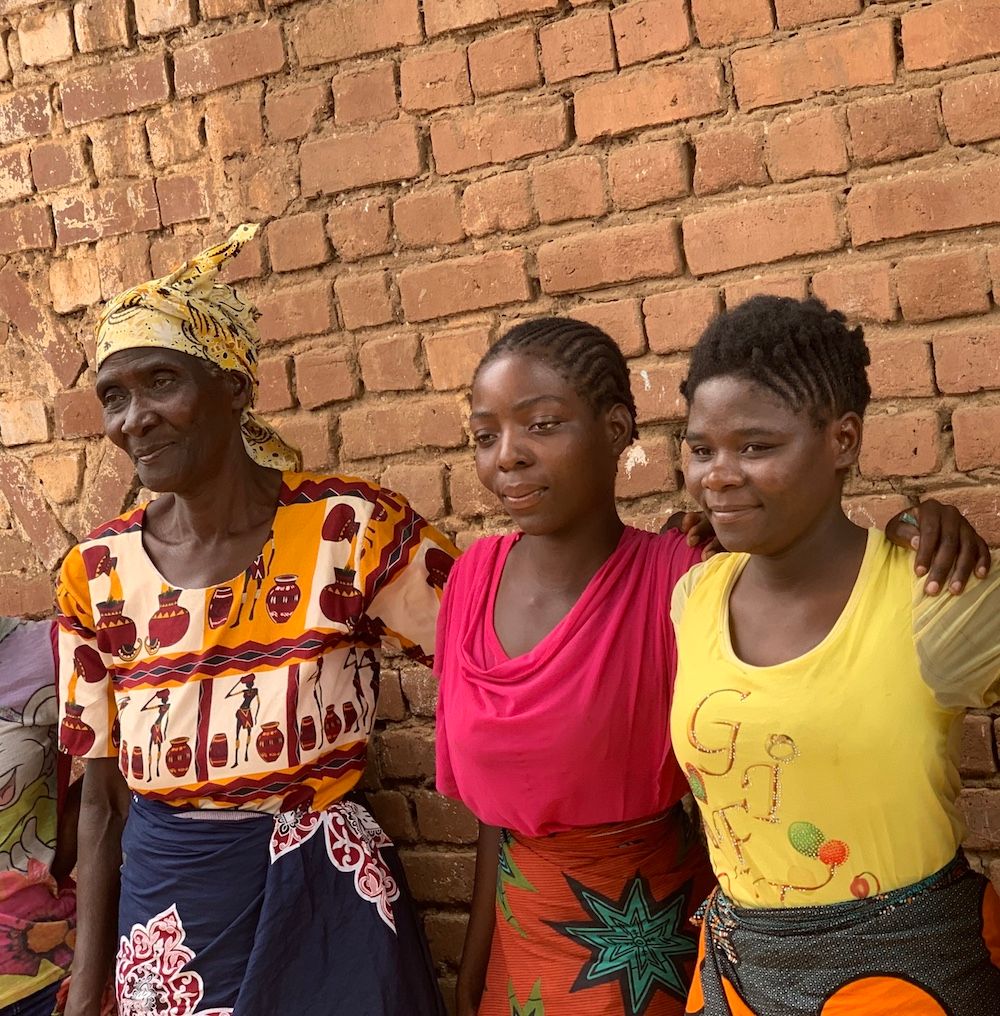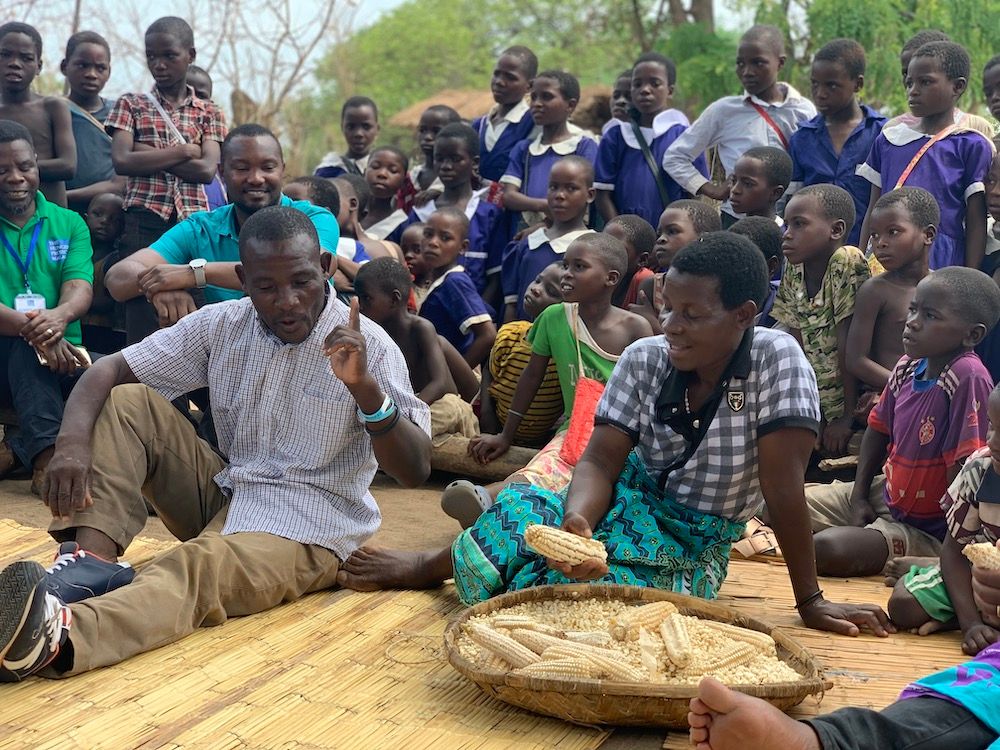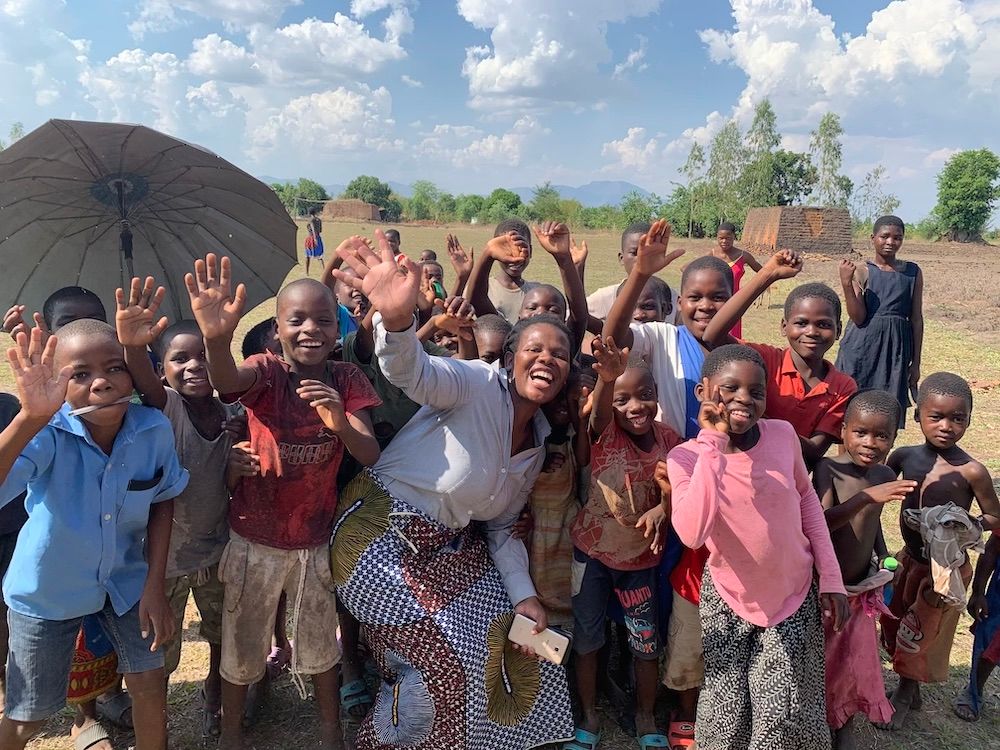Malawi with The Hunger Project
12/5/2019
I was first introduced to The Hunger Project (THP) twelve months ago by a friend who is a huge advocate of THP’s work. My decision to support THP was an easy one: they were clearly doing good work, and Bared was in a position to help.
We initially committed to donating a percentage of our shoes sales over a one month period to THP. I loved that we were supporting a community in Africa, but I had underestimated how enthusiastic my team would be about our involvement. I shouldn’t have been surprised - our staff are the best kind of human beings - but it was fantastic to see them all really get behind it.
A few months after our initial collaboration, my friend Christine, who introduced me to THP, asked if we’d like to travel to Malawi to see the work THP does on the ground. I wanted to be able to speak with real understanding and authority when asked why we chose to support this particular organisation, so Andrew and I made the trip.
We landed in Malawi on the November 16. Malawi is a landlocked country in East Africa. It has a population of around 18 million and is one of the poorest countries in the world. Seventy-one percent of the population live below the poverty line, with 50 per cent living in extreme poverty and suffering from chronic, persistent hunger - living on one meal per day that consists of ground maize and water. The health statistics for Malawi are confronting: six per cent of births result in the mother's death, and more than 10% of the population have HIV. One in 20 children don't survive to the age of five, and life expectancy is just 45 years (this is a considerable improvement upon the previous 35 years, due largely to the massive inroads being made to treat and stop the spread of HIV). On average girls only attend school for four years and 42 per cent of women are married before the age of 18, with 14 per cent of women giving birth between the age of 15 and 19.
We have all heard these sorts of hard-to-fathom statistics before, and it really wasn’t until I witnessed the desperation with my own eyes that I had even a sense of comprehension.
The problems in Africa are not new problems. Billions of dollars have been spent by well-meaning NGOs, foreign governments and philanthropists, but many of the programs have failed. Many programs treat hungry people as passive recipients of aid rather than resourceful individuals. They offer a ‘hand out’ approach that fosters a culture of dependency that is counter to sustainability.
The Hunger Project's approach is different. They see the people living in hunger as the solution, not the problem. THP empowers people to take their future into their own hands. They offer a ‘hand up’, not a ‘hand out’.
To read in detail the incredible strategy that The Hunger Project uses to help millions of people I suggest heading to their website.

This is Jesse. We met Jesse in Nsondole. She sat in a beautiful gold dress in front of her house surrounded by proud family and friends who were there to share her story. Jesse is 42 years old and is married with three children.
Prior to THP, Jesse could not feed her family and she had no income. She lived with persistent hunger in extreme poverty.
Now, thanks to the THP and her hard work, Jesse and her family have three meals per day and her farming produces extra grain that she can sell, providing herself with a disposable income. Jesse got started through the food security program which loans farming inputs such as seed and fertiliser, together with expert farming advice. The improved techniques and inputs increased yields by five to ten times. The loan is repaid with bags of grain, which are then sold for money.
Jesse sells her excess grain and uses the income to buy food and educate her children. She recently purchased a sewing machine for her husband, a tailor, so that he can generate income by making clothes. Next month Jesse will have enough surplus income to buy a motorcycle.
THP helped Jesse believe that with the right resources, she could end hunger in her family and start to pull herself out of poverty. THP provided the resources and Jesse is fulfilling her vision.

Stella spoke with sadness and shame as she described having no choice but to marry off her 14-year old grand-daughter, Emilida, to keep the other three children in her care alive.
Stella’s daughter and son-in-law died of HIV and Stella took on the care of their children. With no income, Stella could simply not afford to feed all four children so Emilida was married off to a man twice her age.
One day, while Emilida was at the markets, she was approached by two Women’s Empowerment Animators (local women who had been trained by The Hunger Project). The Animators asked Emilida why she wasn’t at school and why she was so dirty. After confiding in them about her marriage, the Animators and Emilida returned to her grandmother’s house and spoke to her about the negative impact of child marriage and the importance of education. They encouraged her to have Emilida’s marriage annulled by the village chief and send her back to school.
The Women’s Empowerment Animators empowered Stella with the knowledge and resources she needed to transform her family’s life. Now, Stella farms maize and sells firewood to earn an income. She re-enrolled Emilida in school and is an advocate for girls education. Stella has also become a Women’s Empowerment Animator, so that she can empower other women and girls in her community and help to stop child marriage.
Emilida’s vision is to one day become a teacher so that, she too can empower others through education. The Hunger Project helps to recognise and encourage incredible leaders that are transforming their communities.

This is Sifu and his wife Elina. Like Jesse, prior to THP Sifu could not feed his family more than one meal a day of maize flour and water. Sifu took up the opportunity of a food security loan from the hunger project to access seeds and fertiliser to improve his crops.
Now five seasons on, his maize yields have grown 10-fold. He speaks so proudly of his achievements. He can afford to send all of his children to school. He has two cows, 17 goats, 16 guinea fowl and grows his own Moringa trees (a superfood that is saving millions of Africans from malnutrition).
Sifu and Elina were encouraged by The Hunger Project to see the power within themselves and have taken their family out of hunger. They now plan on extending their house and hope to buy a pump for irrigation.

Bared is committed to supporting The Hunger Project into the future. Keep an eye out for future collaborations and more updates about how Bared is working with THP to help eliminate hunger.
- Anna Baird, Director
If you'd like to make a difference, and help end world hunger. Donate directly to The Hunger Project today!